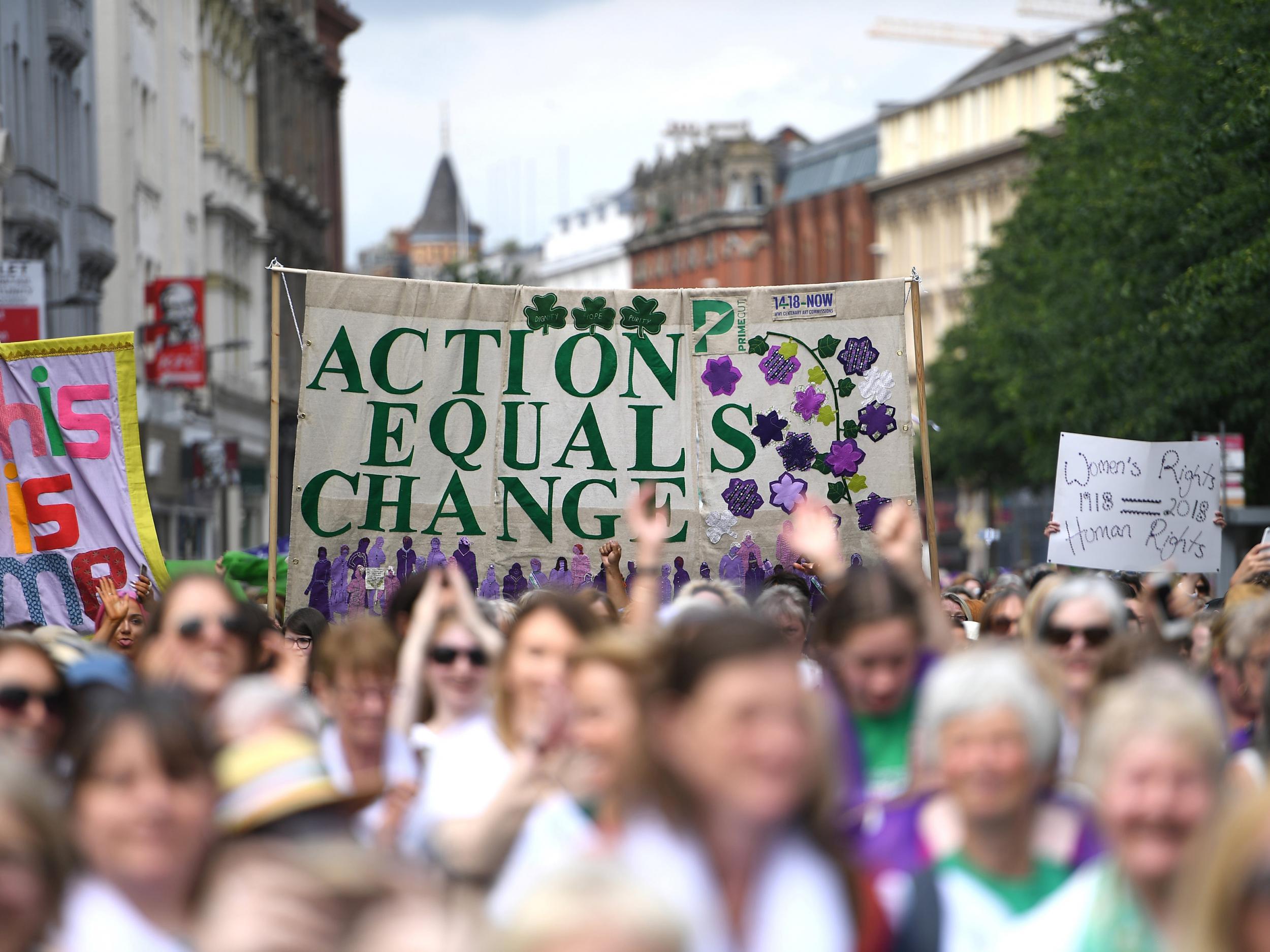Misogyny should be classed as a hate crime, campaigners tell police
'Classifying misogyny as a hate crime enables the police to deal robustly with the root causes of violence against women'

Your support helps us to tell the story
From reproductive rights to climate change to Big Tech, The Independent is on the ground when the story is developing. Whether it's investigating the financials of Elon Musk's pro-Trump PAC or producing our latest documentary, 'The A Word', which shines a light on the American women fighting for reproductive rights, we know how important it is to parse out the facts from the messaging.
At such a critical moment in US history, we need reporters on the ground. Your donation allows us to keep sending journalists to speak to both sides of the story.
The Independent is trusted by Americans across the entire political spectrum. And unlike many other quality news outlets, we choose not to lock Americans out of our reporting and analysis with paywalls. We believe quality journalism should be available to everyone, paid for by those who can afford it.
Your support makes all the difference.Police forces across the country are being asked to record abuse and harassment of women as a hate crime.
Campaign groups want constabularies in England and Wales to follow the example of Nottinghamshire Police in expanding the scope of hate crime to include misogyny.
An open letter cosigned by the Fawcett Society, civil society alliance Citizens UK, senior faith leaders and non-governmental organisations asks the National Police Chiefs Council (NPCC) to vote to record misogyny as a hate crime nationwide at its upcoming meeting on 11 July.
Campaigners say the likes of the #MeToo and #TimesUp movements highlight the need to tackle the abuse, harassment and problematic behaviour that many women are subject to, which they say can create “a culture of impunity in society, leading to more severe crimes”.
So far, only a handful of forces have followed Nottinghamshire Police’s lead since it introduced the measures in 2016 – applying to incidents ranging from street harassment through to unwanted physical approaches.
Helen Voce, from Nottingham Women’s Centre, said: “We believe misogyny is the soil in which violence against women and girls grows.
“The same attitudes at the root of sexism and harassment are the same attitudes that drive more serious domestic and sexual violence.
“Classifying misogyny as a hate crime enables the police to deal robustly with the root causes of violence against women.”
Sam Smethers, chief executive of the Fawcett Society, said: “Misogyny is so widespread it has become normalised in our society.
“As a result, women are routinely objectified and harassed. Unless we challenge it, this won’t change. We have to start calling misogyny out for what it is – a hate crime.”
Sajid Mohammed, chief executive of Nottingham-based charity Himmah and a Citizens UK Council member, said: “Misogynistic abuse is an everyday reality for women and the same hateful attitude which breeds Islamophobia and antisemitism can be directed at women because of their gender.
“Nationwide misogyny hate crime reporting would allow police, the public and lawmakers to fully understand the scale of the day-to-day abuse and harassment women face, so that we can build a society that does not tolerate hate directed against any person on the basis of their identity.”
Sarah Green, codirector of the End Violence Against Women Coalition, said: “If recording this abuse as a hate crime is to be rolled out across the UK, it is crucial that police work in partnership with the local community including local women’s groups from the start.
“And on a broader level, we need to talk about how we prevent this behaviour in the first place through schools, work and through having men and boys challenge each other about its acceptability.”
A NPCC spokesman said: “Police forces in England, Wales and Northern Ireland annually monitor five strands of hate crime.
“Police chiefs will be presented with a paper that asks them to consider the case for monitoring gender-based hate crime in the same way.”
Press Association